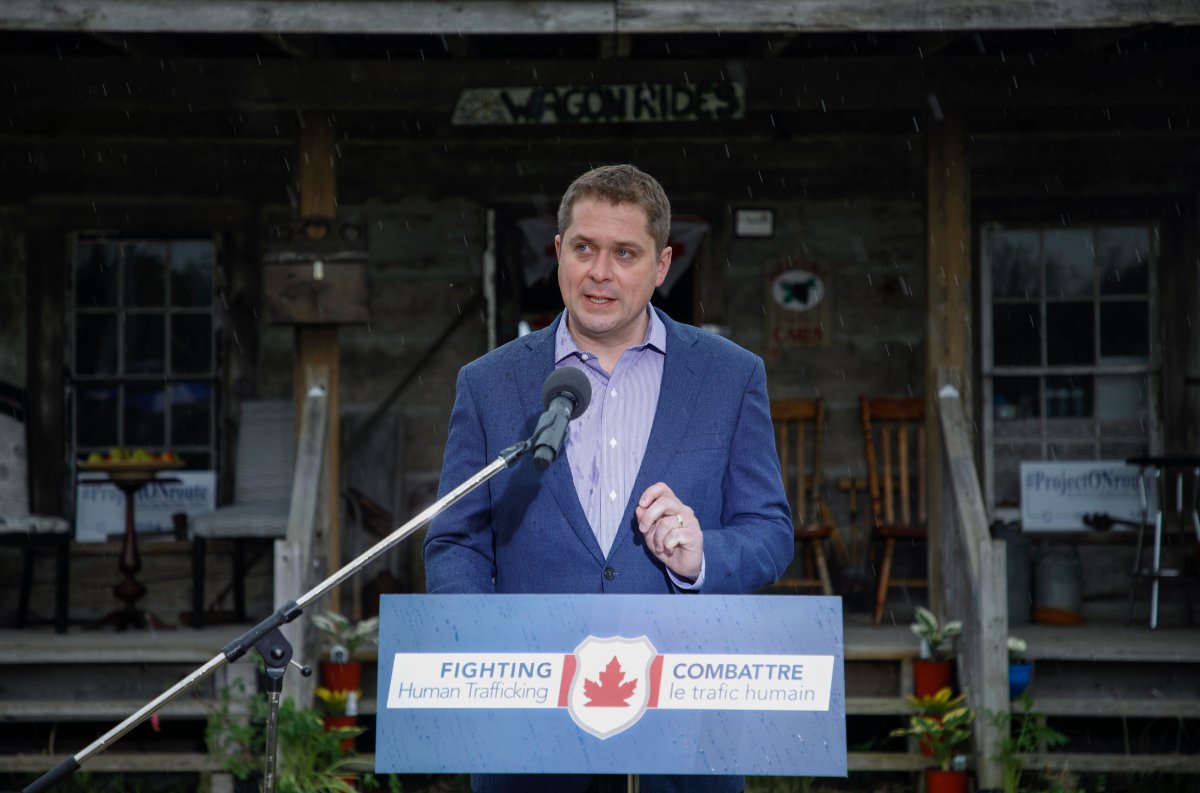Federal Conservative Leader Andrew Scheer stopped in Aylmer, Ont., on Wednesday afternoon to lay out his party’s plan to address human trafficking.

Scheer’s plan consists of four parts: renewing the National Action Plan to Combat Human Trafficking, which expired in 2016, ensuring human traffickers receive consecutive sentences, ending what he describes as “automatic bail” and updating the Criminal Code to reflect the international definition of human trafficking in the Palermo protocols, which the United Nations adopted.
However, a statement from Public Safety Minister Ralph Goodale’s office reports that the vast majority of cases involving trafficking for sexual exploitation in Canada are domestic. Of 531 cases between 2005-18 where RCMP laid human trafficking charges, 510 were domestic and primarily involved sexual exploitation while 21 cases were international and most of those cases were for forced labour.
Goodale’s office also argues “there is no such thing as ‘automatic bail’ because any decision to provide a conditional release requires judicial approval.”
The statement clarifies that the onus is on the Crown to justify detention but Scheer suggests the onus should be on the accused to prove they should be released.
“We know that this is a multifaceted problem. There are issues here that touch on everything from addictions to prostitution to abuse and dealing with the PTSD that young girls and women have coming out of this type of lifestyle,” said Scheer during an appearance on London Live with Mike Stubbs.
“This is one of those things that requires a lot of work at different levels of government. The federal government, we manage the Criminal Code; we make sure that the laws are in place. Provincial governments have more to do with the front-line services and, of course, municipalities deal with the policing aspect of it.”
Scheer noted that the Highway 401 corridor is a known human-trafficking route and said he first learned about the depth of the issue from the London Abused Women’s Centre.
“That’s where I heard some of the stories of how this can happen to literally any family. The people there told me that you can have young girls from families with stable home environments where both parents have steady income and are actively involved in their children’s lives, but for one reason or another, these young girls get caught up in this type of issue often because they’ve been manipulated and groomed,” he said.
“Today, I was at a place called Farmtown (in Aylmer), which not only provides respite, care and a safe place for young girls to go, but they also do training for people, literally across the country, to know how to deal with the trauma that these young girls have.”
A release from the Conservatives notes that 95 per cent of those being trafficked are women, more than a quarter are under 18 and that Indigenous people represent half of all human-trafficking victims, even though they are only four per cent of the country’s population.
- What is a halal mortgage? How interest-free home financing works in Canada
- Ontario doctors offer solutions to help address shortage of family physicians
- Capital gains changes are ‘really fair,’ Freeland says, as doctors cry foul
- Budget 2024 failed to spark ‘political reboot’ for Liberals, polling suggests








Comments